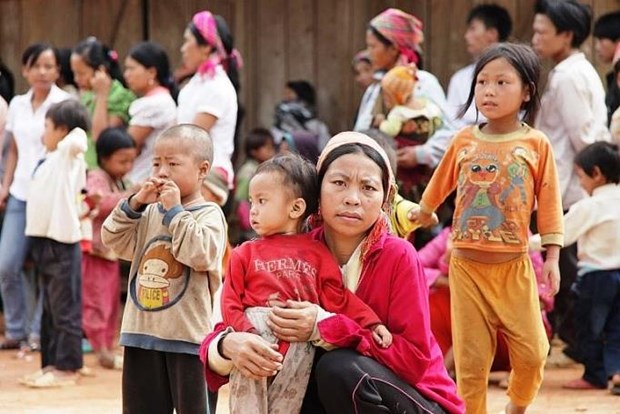WB, UNICEF call for efforts to address child undernutrition in VN
VGP - The World Bank (WB) and the United Nations Children’s Fund (UNICEF) have called for solid steps to handle undernutrition among Vietnamese children, and reaffirmed their strong commitments to work with the Government in this issue as the country is building its socio-economic development strategy for 2021-2030.
 |
|
The WB and UNICEF reaffirm their strong commitments to work with the Government to handle undernutrition among Vietnamese children |
WB Country Director for Viet Nam Ousmane Dione said: “The stakes are high – stunting will continue to affect one in every four Vietnamese children, permanently impairing their development and squandering their potential contribution to the economy, unless proper interventions are conducted during a child’s first two years of life”.
He said the stakes are even higher for children from ethnic minorities who are disproportionately affected and have fewer resources.
Meanwhile, UNICEF Representative in Viet Nam Rana Flowers said that ensuring the best possible nutrition for children in the first years will absolutely reap benefits for the physical health of children, and it will also fuel their brain development and capacity to learn, thus reducing long-term health costs and increasing education outcomes.
“The provision of micronutrients to children and pregnant women is an investment that Governments make in order to achieve a rate of return to their long-term economic growth. Development partners are committed to bringing global expertise and support, and count on the increasing ownership and leadership of Government of Viet Nam to address the nutrition challenges”, she said.
While Viet Nam has made remarkable progress in improving overall human capital outcomes, reducing undernutrition is a persistent challenge. According to UNICEF, more than 230,000 children under 5 years old in Vietnam suffer from severe acute malnutrition every year, which is a major cause of stunting and death in children under 5.
A new World Bank report “Persistent Malnutrition in Ethnic Minority Communities of Viet Nam: Issues and Options or Policy and Interventions” found that nearly one-third ethnic minority children are affected by stunting, more than twice as much as the Kinh majority, and 21 percent of ethnic minority children are underweight, a ratio 2.5 times higher than that of their Kinh peers.
Nutrition interventions are most effective during the first 1,000 days of life from the first day of pregnancy until the child’s second birthday. Undernutrition during this period could lead to extensive and largely irreversible damage to physical and cognitive development.
Stunting is linked to lower economic productivity, including a 10% reduction in lifetime earnings. When multiplied across an entire nation, poor nutrition can cost a nation up to three percent of its GDP annually.
As such, the World Bank and UNICEF recommend several policy actions including securing adequate and predictable financing for nutrition-related programs, building multisectoral plans to address the underlying determinants of undernutrition, and scaling up evidence-based interventions./.-VNA

